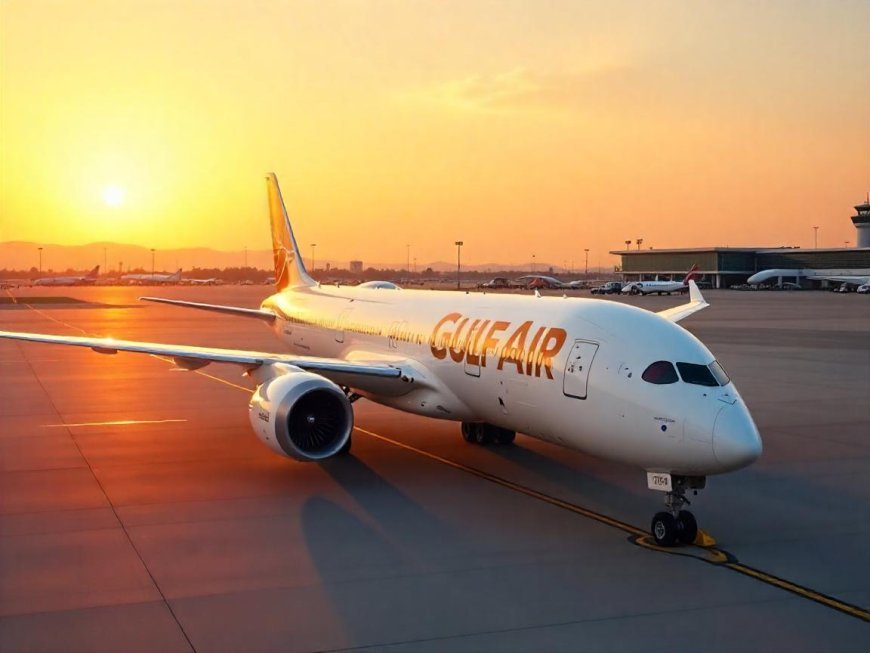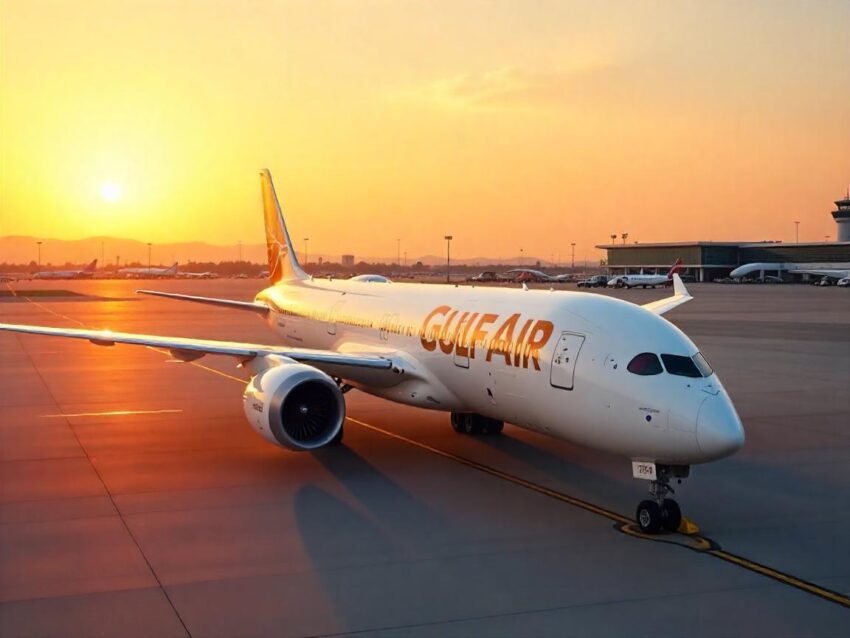Gulf Air’s Boeing 787 Order: A Strategic Leap with Global Implications, Here’s Everything You Need To Know


Bahrain ’s national airline, Gulf Air, has said it is restructuring its fleet following the acquisition of 12 new aircraft of the Boeing 787-9 Dreamliner and offers for an additional six. This decision enhances the long-haul travel expertise of the airline and also demonstrates a variety of initiatives that are part of the airline’s complex long-term plan including fleet renewal, global industry partnership, technology advancement, and environmental preservation.
Strengthening A Legacy Partnership
The new deal solidifies the decades-long relationship between Gulf Air and Boeing, which that started in 1961 with the delivery of a DC-3 aircraft. Gulf Air, the national carrier of the Kingdom of Bahrain, has continued a legacy of industry milestones by taking delivery of the first A320neo in the Middle East. The airline became the first national carrier to fly the A320neo in the region when it took delivery of the aircraft on 28 August 2018. Gulf Air becomes the first airline in the region to operate the A320neo and the second worldwide. New Dreamliners will allow Gulf Air to grow its roster of Boeing 787s from 10 to 22 if all options are exercised, underscoring the carrier’s move toward an all-Dreamliner widebody fleet.
Strategic Move In Regional Aviation
The order is a key milestone in Gulf Air’s strategy to progressively modernise its fleet and offer an enhanced product and service offering.” Hubbed at Bahrain International Airport, the airline is positioning itself as a regional gateway to the Asia, Europe and America. With its superior fuel efficiency and long range, the 787 typically offers airlines 20-25% better fuel efficiency per seat and lower emissions than similar sized airplanes and can carry more cargo and passengers while using less fuel.
This strategic fleet upgrade is part of a bigger vision to further raise Bahrain’s profile as a leading aviation hub in the Gulf. In a market now largely influenced by the heavyweight carriers – Emirates, Qatar Airways and Etihad – Gulf Air’s transition to a modern and more fuel-efficient fleet is a reminder that it will prioritise quality, family-bubble network and sustainability – operating for less, and offering a lower environmental footprint.
Impact On The U.S. Economy
Meanwhile, beyond Bahrain, the economic reverberations of that order are being felt across the United States. Boeing said the agreement will help to underpin some 30,000 jobs in the United States, at companies across its broad aerospace supply base. From manufacturing to logistics and systems engineering, this purchase reaffirms the value of international orders in supporting high-skilled American jobs.
The news was delivered in Washington, DC, alongside high-profile guests such as U.S. Commerce Secretary Howard Lutnick and Bahrain’s Minister of Finance and National Economy, Shaikh Salman bin Khalifa Al Khalifa, underscoring the diplomatic and economic significance of the deal.
Driving Innovation And Passenger Experience
The Boeing 787 Dreamliner has been a game-changer, and not just for the many airlines and passengers who’ve flown on the cutting-edge aircraft since it launched in 2011. It is credited with having enabled more than 425 new nonstop routes and carrying more than a billion passengers around the world. Gulf Air’s move to base its long-haul range around this aircraft underlines its market-leading attributes.
Passenger for the Dreamliner are better windows, cabin altitude is lower, the humidity is higher and it also equipped with state-of-the-art systems to manage turbulence. These are not only more comfortable, they make the airline increasingly attractive to both business and economy pax.
Sustainability At The Core
Sustainability is the focus of the global aviation industry, and Gulf Air’s selection of the 787 supports the industry trend. The plane’s materials include composite construction; highly fuel-efficient engines; and an aerodynamic design that together reduce carbon emissions by a wide margin over older models. Gulf Air’s Chairman Khalid Taqi indicated that the acquisition is part of the airline’s environmental goals and Bahrain’s national bid to be at the forefront of green initiatives in the region.
A Signal To Competitors
The high-profile order momentum is occurring amidst a rebound in demand in the global aviation market, following the downturn stemming from COVID-19, and the gradual build up in capacity in preparation for the return of travel. Gulf Air’s pre-emptive fleet stance could trigger competitive moves, such as those from operators still flying mixed or obsolescent widebody types.
The Dreamliner’s reputation for reliability and operating cost savings will be a real advantage in a cutthroat market. In emphasizing fleet commonality, Gulf Air is also setting itself up to simplify maintenance, training and fuel management — important operational levers in today’s cost-focused airline industry.
The Bigger Picture: A Win-Win Partnership
In the end, this deal is about more than a commercial transaction. It’s a convergence of interests among a rising Gulf carrier, a leading global aerospace company and two nations with interlocking strategic concerns. It is a reminder of how aviation alliances can drive economic development, environmental aspirations, and geo-political bonhomie.
The order adds to the position of Boeing as a linchpin of the United States exports and a leader in the aerospace industry. For Gulf Air, it represents a new chapter of expansion, modernization and global ambition.
And while the eyes of the aviation industry look on, this agreement might provide a template for how airlines and airframe manufacturers can work together to chart a course in a future characterised by sustainability, innovation and interconnected economies.
The post Gulf Air’s Boeing 787 Order: A Strategic Leap with Global Implications, Here’s Everything You Need To Know appeared first on Travel And Tour World.






